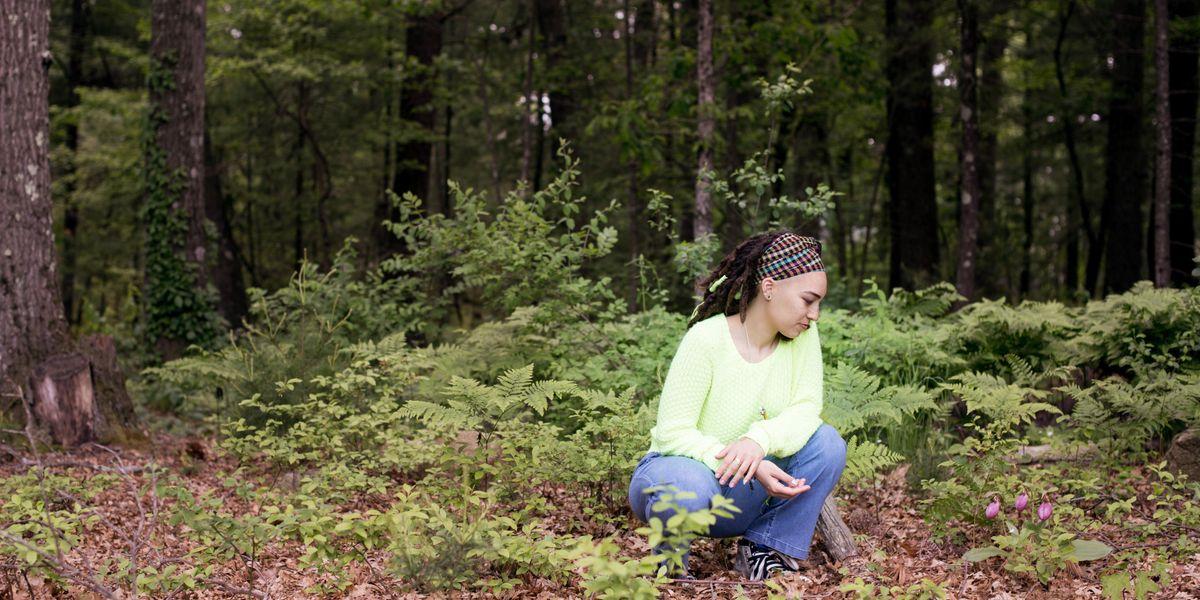How April Nieves Combines Her Passions for Tap Dance and Eastern Medicine
Dancers are no strangers to multi-hyphenate careers. But a tap-dancing acupuncturist remains a rarity.
April Nieves is not only the assistant director of the Boston-based tap company Subject: Matter, she is also a licensed acupuncturist, herbalist and founder of The Sunny Side: Acupuncture and Healing Arts in New York City.
One of the eight branches of traditional Chinese medicine, acupuncture involves piercing the skin with thin metallic needles to improve the flow of qi, or vital energy. Qi is believed to travel along pathways through the body, and its obstruction can create poor physical and emotional health.
Dance Magazine
spoke to Nieves, who studied Chinese and Japanese styles of acupuncture as well as Chinese herbal medicine at the New England School of Acupuncture, about her practice and what it’s like to maintain a career in tap dance while running her own business.

Hayley Ellen Day, Courtesy Nieves
Can you talk a bit about your approach to acupuncture?
Chinese medicine sees the person as more than just a physical body. It’s also a spiritual, energetic, emotional body. When someone comes to me, I approach them how they are that day. That includes whatever they’re going through in their life. Then, we go through their systems and what’s going on, like their sleep and their emotions and digestion, and if they’re coming to me for a specific thing.
I tend to use bodywork and sometimes massage. I’ll use herbal medicine if I feel it’s appropriate. Meditation and self-cultivation are huge for me. I tend to use a lot of visualization; visualizing what they want to have, or how they want to be during their treatment. Sometimes it’s hard to imagine those things, so I think it’s a good exercise to visualize what they want in their life, and how it will change them and those that they have relationships with.
What role, if any, did dance play in the development of your method?
I went to Japan and learned a specific technique of acupuncture called Shakuju therapy, where there’s no needle insertion. Learning from the creator of this technique, the way he did the treatment looked like a dance to me. It’s very graceful and detailed. There is a rhythm to my treatments and a rhythm I try to keep with my patients so that they get familiar with it, and there’s a certain flow to it.
Now, I’m continuing to find where medicine, tap dance and just living overlap. How can tap dance heal others? How can it be a medicine?
How can acupuncture help dancers?
In my experience, different types of dancers do different things for their bodies. Some dancers will stretch, for example, because that’s part of the culture of the dance. But in other types of dancing, like tap, you may warm up, but there might not be stretching or a cooldown.
I find when I’m working with dancers, they aren’t really taking care of themselves or their bodies. A lot of creatives get so focused on creating that, sometimes, you don’t prioritize rest. Chinese medicine and acupuncture can calm you, clear your mind and heal or lessen physical pain. You may also have less tightness or soreness.
Sometimes pain can come from stress. In the COVID pandemic, a lot of creative people have lost a lot of work, and they’re like, “What am I going to do? How do I pivot so that I can start a new creative thing, or a new way of spreading my joy?” Usually then, I guide them through information about what can affect the pain that they’re having.
Acupuncture can also increase sleep, help you breathe deeper and boost immune function. If your qi is flowing smoothly, you usually don’t feel as stressed.

Ryan Stanbury, Courtesy Nieves
What led you to start your own practice?
Because I was unhappy doing acupuncture in a corporate spa setting.
The entrepreneurial journey takes a lot of time and energy and patience, but dancing has even influenced and helped that, as well.
How do you balance your two careers?
For me, they inform each other. I still study tap dance, talk to people within it and continue to study the history of it, while also learning more about acupuncture just by treating other people. Most people in the tap community know that I do this, so there’s always an interconnectedness. The balance can be heavier on tap dance sometimes and heavier on acupuncture sometimes. I’m just in a place where I’m accepting that, and that’s okay.




